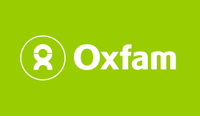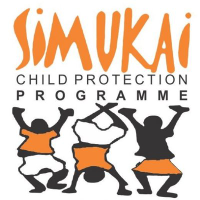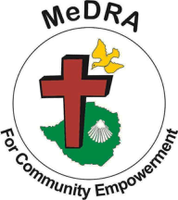Terms of Reference for End of Project Evaluation Consultancy Project Title: Building Resilience in Gokwe South Communities
Job Description
Terms of Reference for End of Project Evaluation Consultancy
Project Title: Building Resilience in Gokwe South Communities
1. Background:
Methodist Development and Relief Agency (MeDRA) is an organization dedicated to
implementing development and relief projects to support communities in need, focusing on
areas such as WASH, health, education, food security, livelihoods, and disaster response.
MeDRA works to empower individuals and communities, promote sustainable development, and
build resilience in communities.
Methodist Development and Relief Agency (MeDRA) is implementing a 3-year project titled
"Building Resilience in Gokwe South Communities," funded by Bread for the World. This project
aims to address critical aspects of Water, Sanitation, and Hygiene (WASH), income generation,
and food security within targeted communities in Gokwe South.
Objective: The goal of the project is to improve livelihoods in Gokwe South district by focusing on
the following objectives:
1. Improve Access to Sanitation Facilities and Hygiene Information:
• Indicator 1.1: Increase the number of households with access to drinkable water by 40%.
• Indicator 1.2: Increase the number of households adopting good health and hygiene
practices by 40%.
2. Enhance Food Security:
• Indicator 2.1: Achieve a 40% increase in crop yield across all crops by the end of the
project period.
• Indicator 2.2: Increase the number of households enjoying at least two meals a day by
40%.
3. Increase Income Generation:
• Indicator 3.1: Ensure that 50% of households regularly use income from income-
generating activities to cover basic needs, with baseline data collected at the project's
outset.
• Indicator 3.2: Increase the number of households from the nine Income Generating
Activity (IGA) groups able to make savings by 40%.
Project Duration: The Building Resilience Project in Gokwe South commenced on November 1,
2021, and is scheduled to conclude on October 31, 2024.
Target: 2 000 direct and 6 000 indirect project participants.
Main Activities
• WASH (promotion of health and hygiene through health clubs, improving sanitation
through building latrines, drilling and rehabilitation of water points)
• Food Security (trainings in agroecology - production and processing or value addition)
• Income Generation (promoting savings through ISALs and establishment of IGAs)
• COVID 19 Support to Rural Health Centres and households.
Geographical Coverage: The project is being implemented in nine villages in Nemangwe, Ward
13, Gokwe South district, Zimbabwe.
Thus, MeDRA is seeking a suitably qualified individual or team to conduct an evaluation of the
project.
2. Purpose of the Evaluation:
The primary purpose of the evaluation is to inform MeDRA’s organisational learning such as the
best practices and areas where programming can improve on its efficiency, effectiveness,
relevance, sustainability and impact. Lessons learnt and recommendations made through the
evaluation will inform MeDRA’s designing of next phase of the project. As such MeDRA and Bread
for the World are the key audience for the evaluation.
The end of project evaluation will be guided by five key criteria. Firstly, the evaluation will assess
the project's relevance by aligning objectives with beneficiary needs and donor policies.
Secondly, effectiveness will be measured by evaluating the project's achievement of intended
outcomes in Gokwe South communities. Thirdly, efficiency will be examined to ensure optimal
resource utilization. Fourthly, sustainability factors will be analyzed, including beneficiary and
institutional capacity to maintain project benefits. Lastly, the evaluation will assess the broader
impact on community livelihoods and resilience. By focusing on these criteria, the evaluation
aims to provide valuable insights into achievements, challenges, and lessons learned, informing
future program planning and implementation strategies to ensure MeDRA's interventions remain
effective and relevant in similar contexts. Thus, the evaluation should
• Assess the extent to which the project achieved its stated goals and objectives.
• Identify strengths, weaknesses, lessons learned, and areas for improvement.
• Evaluate the project's impact on the target communities, including changes in access to
water, adoption of health and hygiene practices, food security, and income generation.
Duties and Responsibilities
3. Scope of Work:
MeDRA is seeking the expertise of a consultant or team to conduct an End of Project Evaluation,
aimed at providing substantiated evidence of project impact, fostering knowledge sharing,
ensuring transparency, and guiding future decision-making and planning endeavours. The scope
of work includes:
a) Reviewing all pertinent project documentation, encompassing proposals, reports, and
monitoring data.
b) Conducting interviews and facilitating focus group discussions with project stakeholders,
including staff, beneficiaries, local authorities, and relevant community members.
c) Assessing the effectiveness of project activities in achieving their intended outcomes and
objectives.
d) Evaluating the sustainability of project interventions and their potential for enduring
impact beyond the project's duration.
e) Analyzing gender dynamics within project interventions and assessing the inclusivity of
project outcomes.
f) Examining the efficiency of project implementation, focusing on resource allocation and
adherence to project timelines.
4. Key Evaluation Questions:
• To what extent did the project achieve its objectives, including improvements in access
to water, adoption of health and hygiene practices, food security, and income generation
in building resilience in the project area?
• What were the key factors influencing the success or failure of project interventions in
building resilience in the project area?
• How effective were the capacity building activities in enhancing the skills and knowledge
of beneficiaries in the 9 villages in Gokwe South?
• What were the gender-specific outcomes of the project, and how were gender dynamics
addressed by the project in the 9 operational village?
• What lessons can be learned from the project implementation, and how can these inform
future programming in similar contexts?
5. Methodology:
• Employ a mixed-methods approach, including quantitative surveys, qualitative
interviews, and participatory techniques.
• Ensure representation of diverse perspectives, including gender, age, and socio-
economic status.
• Use sampling techniques to select representative samples of beneficiaries and
stakeholders.
• Triangulate data from multiple sources to enhance validity and reliability.
6. Deliverables:
• Inception Report submitted, with data collection tools and an evaluation matrix with
questions and data collection methods to be used for each evaluation question. The
inception report to be discussed and approved by MeDRA.
• First draft of the evaluation report (ranging 20 to 30 pages) upon completion of fieldwork
highlighting findings, conclusions, and recommendations
• Second draft incorporating findings from the validation workshop.
• Final report – one electronic copy in pdf and five spiral bound hard copies submitted by 12 April 2024.
• Prepare a comprehensive evaluation report highlighting findings, conclusions, and
recommendations upon completion of fieldwork.
• Present the report to relevant stakeholders, including project partners, donors, and local authorities.
• Provide a clear and concise executive summary outlining key findings and actionable recommendations.
7. Financial Proposal:
• Provide a detailed financial proposal outlining the costs associated with conducting the evaluation, including personnel, travel, data collection and report production
expenses.
Qualifications and Experience
8. Qualifications and Expertise:
• The evaluation team should consist of individuals with experience in project
evaluation, preferably in the fields of WASH, food security, sustainable livelihoods
and community development.
• Knowledge of the local context and fluency in relevant languages (English and local
languages) are desirable.
9. Safeguarding and Ethical Considerations:
• MeDRA's commitment to safeguarding and preventing sexual exploitation, abuse, and
harassment (PSEAH) is integral to our operations. As such, the evaluation consultant will
be required to adhere to MeDRA’s Safeguarding Policy and Non-Disclosure Agreement,
which must be signed and upheld throughout the consultancy. All information obtained
during the evaluation is strictly confidential and must not be disclosed to any external
stakeholders, including the media or other individuals/firms. Non-compliance with the
Confidentiality Statement may result in termination of the contract.
• Ensure informed consent and confidentiality of information collected during the
evaluation process.
• Respect cultural norms and values while engaging with community members and
stakeholders.
10. Qualifications and Experience
Qualifications and experience required for the Lead Consultant include:
• Evaluation Expertise: Proven experience in conducting end-of-project evaluations or
similar assessments, preferably in the field of community development or resilience-
building projects.
• Educational Background: A relevant advanced degree in development studies, social
sciences, economics, or a related field. Additional qualifications in monitoring and
evaluation will be an asset.
• Experience: In-depth understanding of the water, sanitation, and hygiene (WASH) sector,
sustainable livelihoods and food security initiatives, particularly in rural contexts.
• Monitoring and Evaluation: Strong background in monitoring and evaluation
methodologies, including experience in conducting end-of-project evaluations and
impact assessments. Proficiency in qualitative and quantitative research methodologies,
including data collection techniques, analysis, and interpretation.
• Stakeholder Engagement: Ability to engage effectively with stakeholders, including local
communities, government departments, donors, and implementing partners.
• Analytical Skills: Strong analytical skills with the ability to interpret data, identify trends,
and provide actionable recommendations for program improvement.
• Communication: Excellent written and verbal communication skills, including the ability
to prepare comprehensive reports and present findings to diverse audiences.
• Cultural Sensitivity: Sensitivity to cultural and contextual factors influencing WASH
practices and willingness to adapt approaches accordingly.
• Project Management: Proficiency in project management principles, including planning,
budgeting, and coordination of activities within a multidisciplinary team.
• Commitment: Commitment to MeDRA's mission and values, as well as adherence to
ethical standards and principles of professional conduct.
Candidates meeting these qualifications and experience requirements will be considered for the Consultancy role for the Building Resilience in Gokwe South Communities project.
Similar Listings

Baseline Assessment for the project, “Integrated Emergency Response for El Niño Drought Affected Communities in Zimbabwe,
Oxfam — Harare

Terms Of Reference
Oxfam — Harare

Terms Of Reference
Oxfam — Harare

CALL FOR EXPRESSION OF INTEREST FOR CONSULTANCY SERVICES FOR THE DESIGN AND IMPLEMENTATION OF A CAPACITY DEVELOPMENT PROGRAM FOR SIMUKAI CHILD PROTECTION PROGRAMME
Simukai Child Protection Program — Harare

Location: Gokwe
Company: MeDRA - Methodist Development and Relief Agency
Expiry Date: 2024-03-07 00:00:00
